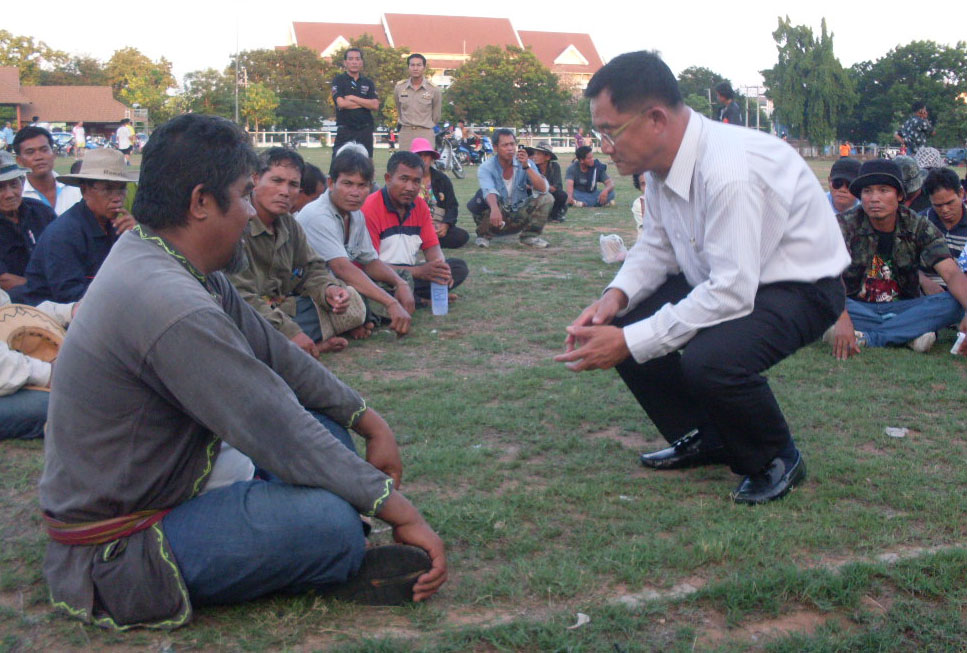KHON KAEN – As youth partook in a football match in the background, rice farmers from three Khon Kaen districts gathered on the lawn of the provincial hall to challenge a game that mill companies have played with them for years. Arriving early Monday morning, 800 farmers from Nam Phong, Muang, and Sam Soong districts voiced concerns over the compensation they expect to gain from the upcoming rice harvest.
“The government promised 11 baht per kilogram of rice, but the rice mills are only offering five baht per kilo,” claims Pitak Danrima, a farmer with 21 rai of land (a little more than three hectares).
While Thailand’s central government regulates the price of rice, mill owners serve as “middle-men”, purchasing rice directly from farmers and selling it to distributors for profit. Mr Danrima has always had a problem with selling to local mills. The cost of the chemical fertilizers, pesticides, and irrigated water used to grow crops during the dry season is more than most mills are willing to pay, forcing farmers like Mr. Danrima into ever-deepening debt.
The inability of the government to oversee the fairness of rice transactions on a local level poses concerns for Sawat Oophad, a committee member of the recently-formed Off-Season Rice Growers Network.
Mr. Oophad believes “the provincial government doesn’t have a full understanding of the issues. This allows middle-men to group together and take advantage of farmers in the region.”

Deputy Governor Thanawat Ploysophon asks Sawat Oophad, committee member of the Off-Season Rice Grower Network, for his telephone number so he can provide an update following National Labour Day.
Early in the evening, Khon Kaen’s Deputy Governor, Thanawat Ploysophon made an appearance to respond to villagers. According to Mr. Ploysophon, only large-scale mills can afford to pay the required price set by the government, and only a few such mills exist in the Northeast. The small-scale mills that Mr. Danrima, Mr. Oophad, and other Isaan farmers have access to cannot meet minimum price standards.
Mr. Ploysophon, on behalf of his office, sent a letter to the Ministry of Finance noting the farmers’ concerns, but did not expect a response until after the holiday weekend.
With the upcoming harvest looming, villagers were determined to make their demands known. “We want the government to send someone to organize the rice trade directly so farmers don’t have to deal with the middle-men anymore,” said Mr. Danrima. Up to 200 hundred villagers will stay the night in front of the provincial hall until they receive a formal response. If the provincial government does not meet their expectations, they will take their demands to the central government.
Despite the assurances of the Deputy Governor, the villagers don’t feel confident that they will get a fair price for their rice crops this year. “I still don’t have much faith in what the Deputy Governor says. Everything is still up in the air,” exclaimed Mr. Danrima. The same sentiment holds true for farmers across Khon Kaen province who must find a way to live off of the rice they’ve grown for generations.




